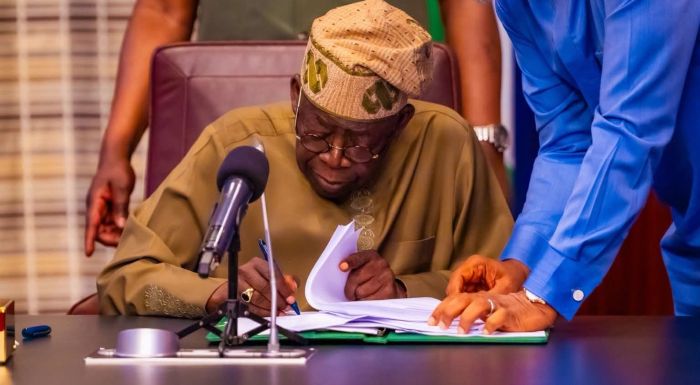(3 Minutes Read)
The new rules, which overhaul some levies that date back to Nigeria’s colonial era, are designed to boost government revenue as a share of gross domestic product from levels that rank it among the lowest in the world.
Nigerian President Bola Tinubu has signed four new tax laws, marking the latest chapter in his push to reform the economy of Africa’s most populous nation.
The new rules, which overhaul some levies that date back to Nigeria’s colonial era, are designed to boost government revenue as a share of gross domestic product from levels that rank it among the lowest in the world.
They will reduce taxes for low-income households and small businesses while making the wealthy and larger companies pay more. The bills are the most significant reforms since the president loosened currency rules and phased out fuel subsidies after taking office in 2023.Changes include offering Nigerians a first-ever conditional rebate of 20% on annual rent.
The government hopes to lift the tax share of GDP to 18% by 2030 from around 13% at the moment. Tinubu will have to rely on Nigeria’s 36 state governors and 774 council heads to implement some aspects of the new laws, especially the exclusion of small businesses from certain taxes — a point he noted in his remarks.
Read Also:
Taken as a whole, Tinubu’s reforms have helped improve investor sentiment toward Nigeria, even as they were initially blamed for fanning a cost-of-living crisis that sparked deadly protests last year. Foreign exchange reserves have increased, and the naira has stabilised following a 70% depreciation against the dollar that was partly due to the removal of its peg against the US currency. In May, Moody’s Ratings upgraded the country’s foreign currency debt rating.





